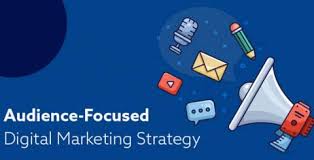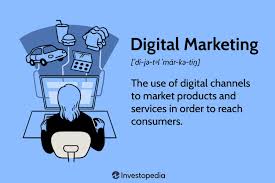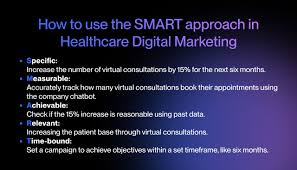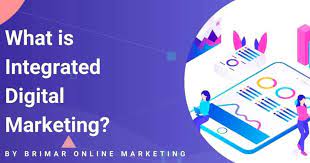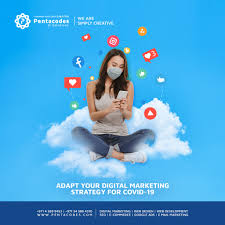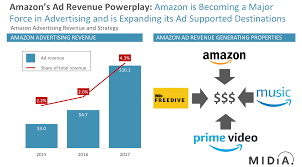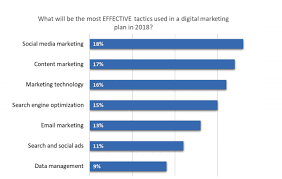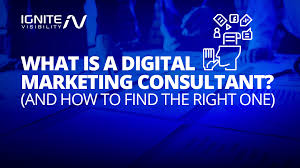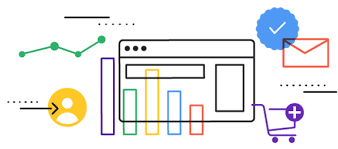The Role of a Web Marketing Consultant in Driving Online Success
In today’s digital age, having a strong online presence is crucial for the success of any business. This is where a web marketing consultant plays a vital role in helping businesses navigate the complexities of the online world and reach their target audience effectively.
What Does a Web Marketing Consultant Do?
A web marketing consultant is a professional who specialises in developing and implementing strategies to promote a business or brand online. They are experts in various aspects of digital marketing, including search engine optimisation (SEO), pay-per-click (PPC) advertising, social media marketing, email marketing, and content creation.
By conducting thorough research and analysis, a web marketing consultant identifies the best channels and tactics to reach the target audience and achieve the desired goals. They work closely with clients to develop customised strategies that align with their business objectives and budget constraints.
The Benefits of Hiring a Web Marketing Consultant
There are several benefits to hiring a web marketing consultant for your business:
- Expertise: A web marketing consultant brings specialised knowledge and skills to the table, ensuring that your online campaigns are executed effectively.
- Time-Saving: By outsourcing your digital marketing efforts to a consultant, you can focus on other aspects of your business while knowing that your online presence is in good hands.
- Measurable Results: A web marketing consultant uses data-driven techniques to track the performance of your campaigns and make informed decisions for continuous improvement.
- Innovation: Keeping up with the latest trends and technologies in digital marketing can be challenging. A consultant stays abreast of industry developments and implements innovative strategies to keep your business ahead of the competition.
Conclusion
A web marketing consultant plays a crucial role in helping businesses succeed in the competitive online landscape. By leveraging their expertise and experience, businesses can enhance their visibility, attract more customers, and achieve sustainable growth. If you are looking to boost your online presence and drive success through digital channels, consider partnering with a web marketing consultant today.
Maximise Your Online Presence: The Top 6 Benefits of Hiring a Web Marketing Consultant
- Specialised expertise in digital marketing strategies
- Customised solutions tailored to meet business objectives
- Data-driven approach for measurable results
- Saves time by outsourcing online marketing efforts
- Keeps up with industry trends and innovations
- Helps businesses stay ahead of competition in the online landscape
Potential Drawbacks of Hiring a Web Marketing Consultant: Cost, Dependency, and Loss of Control
Specialised expertise in digital marketing strategies
A key advantage of hiring a web marketing consultant is their specialised expertise in digital marketing strategies. These professionals possess in-depth knowledge and skills in various online marketing techniques, such as search engine optimisation, social media marketing, and content creation. By leveraging their expertise, businesses can benefit from tailored strategies that are designed to enhance online visibility, engage target audiences effectively, and drive measurable results. The specialised knowledge of a web marketing consultant ensures that businesses stay ahead of the curve in the ever-evolving digital landscape, ultimately leading to increased brand awareness and sustainable growth.
Customised solutions tailored to meet business objectives
Web marketing consultants offer a valuable pro by providing customised solutions tailored to meet specific business objectives. By understanding the unique needs and goals of each client, these consultants can develop strategies that are precisely aligned with the business’s vision and objectives. This tailored approach ensures that the digital marketing efforts are focused and effective, ultimately leading to better outcomes and success for the business in the online realm.
Data-driven approach for measurable results
A key advantage of hiring a web marketing consultant is their data-driven approach, which enables businesses to achieve measurable results. By analysing and interpreting relevant data, these consultants can track the performance of online campaigns with precision, allowing for informed decision-making and continuous improvement. This focus on data not only provides valuable insights into the effectiveness of marketing strategies but also ensures that resources are allocated efficiently to maximise ROI and drive tangible outcomes for the business.
Saves time by outsourcing online marketing efforts
By outsourcing online marketing efforts to a web marketing consultant, businesses can save valuable time that can be redirected towards other core activities. Web marketing consultants bring expertise and efficiency to the table, allowing businesses to focus on their strengths while leaving the complexities of digital marketing in capable hands. This time-saving benefit not only streamlines operations but also ensures that online marketing efforts are managed effectively and strategically, leading to better results and business growth in the competitive online landscape.
Keeps up with industry trends and innovations
One key advantage of hiring a web marketing consultant is their commitment to staying abreast of industry trends and innovations. By continuously monitoring the ever-evolving digital landscape, these consultants ensure that your online strategies remain current and effective. Their knowledge of emerging technologies and best practices allows them to implement cutting-edge solutions that keep your business ahead of the curve, maximising your online presence and driving success in a rapidly changing market.
Helps businesses stay ahead of competition in the online landscape
In the fast-paced and ever-evolving online landscape, a web marketing consultant serves as a valuable asset in helping businesses maintain a competitive edge. By staying abreast of the latest trends, technologies, and strategies in digital marketing, these professionals enable businesses to adapt swiftly and effectively to changes in the online environment. Through innovative approaches and tailored solutions, web marketing consultants empower businesses to not only keep up with but also stay ahead of their competition, ultimately driving growth and success in the digital realm.
Costly
For small businesses with constrained budgets, one significant drawback of hiring a web marketing consultant is the cost involved. The fees charged by these professionals can often be high, making it a financial challenge for smaller enterprises to afford their services. This expense may deter some businesses from seeking the expertise of a web marketing consultant, despite the potential benefits they could bring in terms of online visibility and customer engagement. As a result, cost considerations can be a significant barrier for small businesses looking to enhance their digital marketing efforts through external consultancy.
Dependency
One significant drawback of relying on a web marketing consultant for digital marketing strategies is the potential dependency it can create, which may hinder the development of in-house skills within the business. By constantly outsourcing digital marketing tasks to a consultant, employees may miss out on valuable opportunities to learn and grow their own expertise in this area. This dependency can limit the long-term sustainability of the business’s digital marketing efforts, as internal capabilities and knowledge may not be adequately developed or nurtured. It is essential for businesses to strike a balance between leveraging external expertise and investing in building internal skills to ensure continued success in the ever-evolving digital landscape.
Lack of Control
When businesses opt to outsource their online marketing efforts to a web marketing consultant, one significant drawback they may encounter is the potential loss of control. Entrusting external professionals with the task of managing digital campaigns can lead to a sense of detachment and uncertainty regarding the direction and execution of marketing strategies. Businesses may find it challenging to maintain a hands-on approach and make real-time adjustments, which could result in a perceived lack of control over their online presence and branding efforts.

